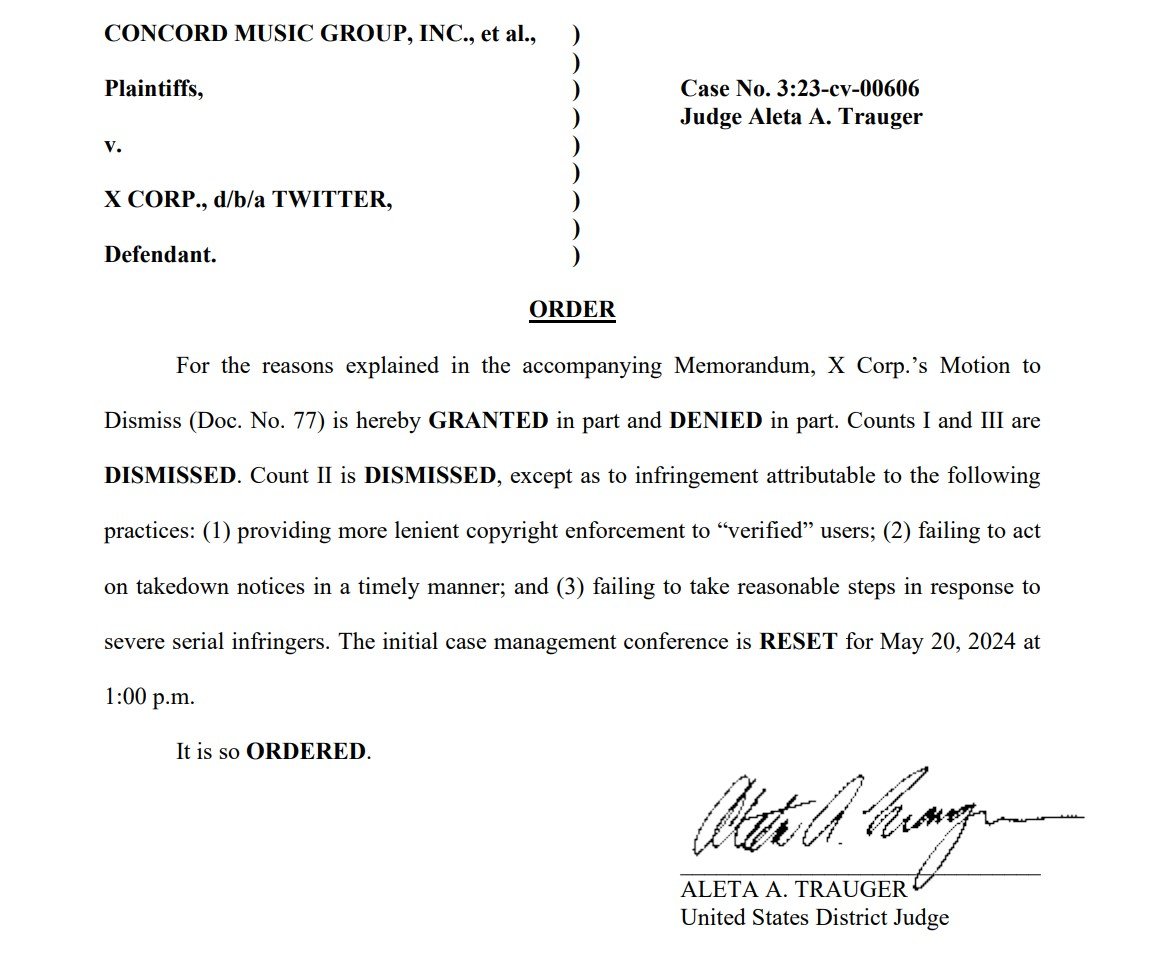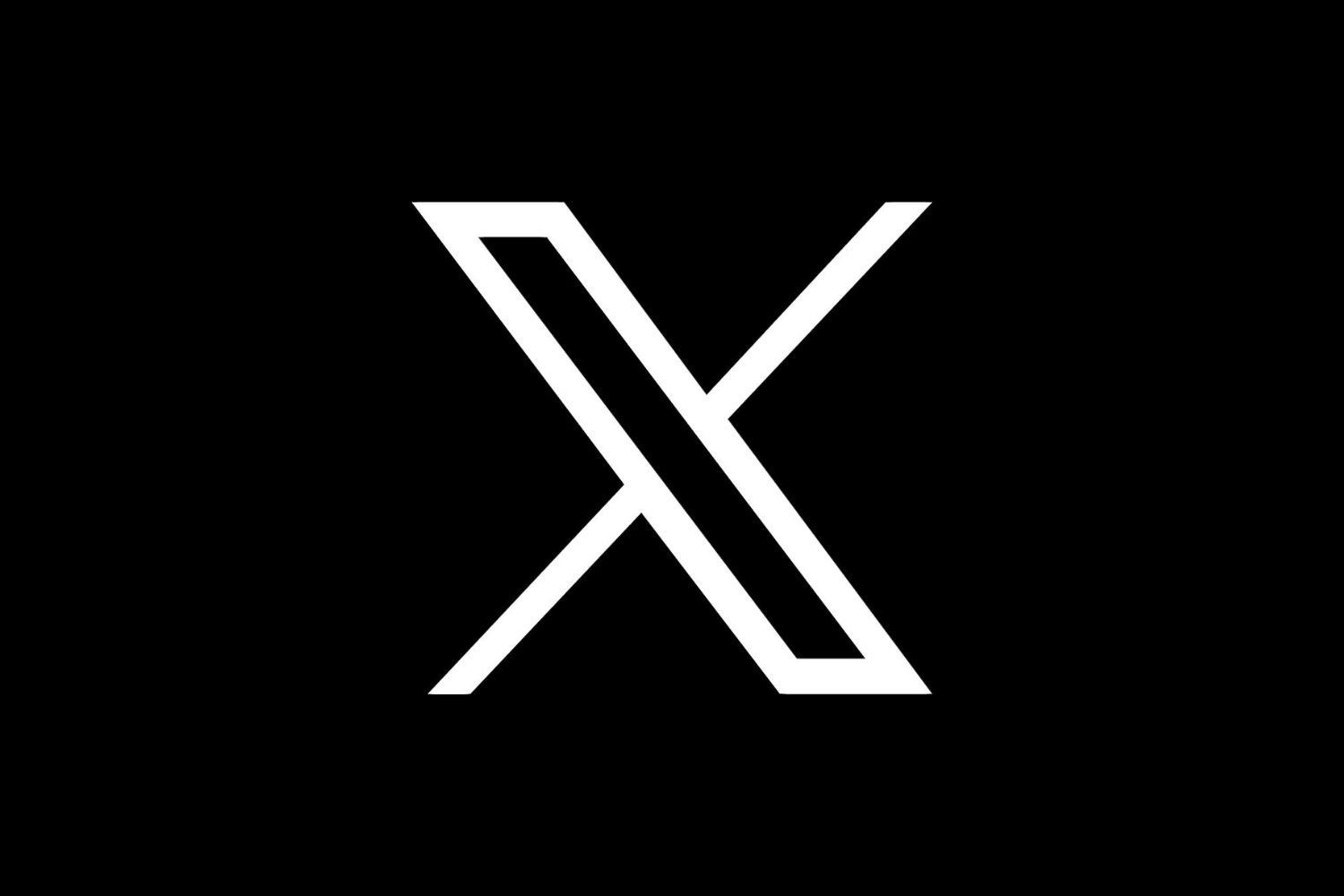 Under U.S. law, online service providers must respond to takedown notices and implement a meaningful policy to terminate the accounts of repeat infringers.
Under U.S. law, online service providers must respond to takedown notices and implement a meaningful policy to terminate the accounts of repeat infringers.
Many of the large social media platforms stick to these rules but, according to
a lawsuit
filed by several prominent music companies last year, X is not among them.
In a lawsuit filed at a federal court in Nashville last summer, Universal Music, Sony Music, EMI, and others accused X Corp of “breeding” mass copyright infringement. The labels argued that X, formerly Twitter, failed to respond adequately to takedown notices and lacked a proper termination policy.
“Twitter fuels its business with countless infringing copies of musical compositions, violating Publishers’ and others’ exclusive rights under copyright law,” the complaint alleged.
Elon Musk himself had previously added fuel to the smoldering fire, characterizing the Digital Millennium Copyright Act (DMCA) as a “
plague on humanity
”.
Motion to Dismiss
Musk’s company was swift to respond to the allegations with a request for the Court to
dismiss all copyright infringement claims
. According to X, the record labels failed to show how the company or its employees actively contributed to any piracy that allegedly took place on the platform.
After taking in the arguments from both sides, Nashville District Court Judge Aleta Trauger responded to the request as follows.
“It does not appear to be disputed, in this litigation, that X/Twitter users sometimes engage in copyright infringement. What is disputed is the extent to which X Corp. has actively encouraged that conduct, if at all,” Judge Trauger writes.
The labels alleged three different claims in their complaint: direct copyright infringement, vicarious copyright infringement, and contributory copyright infringement. X asked for all to be dismissed and the Court partially agreed.
Direct Infringement: Dismissed
The record labels’ direct infringement claim largely relies on the Copyright Act’s “
Transmit Clause
”, suggesting that X is liable because it directly engages in the public performance of pirated music.
This allegation relies heavily on the
Aereo case
, where the operators of the ‘time-shifting’ service were found to be direct infringers for transmitting over-the-air TV signals to their subscribers.
In the present case, X also transmits copyright-infringing material. However, following a lengthy semantic consideration, Judge Trauger concludes that various nuanced meanings can be applied to the term ‘transmission’.
For example, if person Y sends a pirated file to person Z, they are
transmitting
that file. At the same time, their ISPs are also
transmitting
the file, as are the backbone Internet services, and cable owners. Not all of these parties are necessarily ‘direct’ infringers.
Judge Trauger says that Aereo’s exclusive purpose was to transmit copyrighted signals but the same can’t be said for X, which has a multitude of other purposes. As such, the Court doesn’t believe that the “transmit clause” applies here.
“As the Supreme Court explained in Aereo, the Transmit Clause was adopted with the specific purpose of ensuring that both the ‘broadcaster’ and the ‘viewer’ of an audiovisual work could, where appropriate, be held liable for direct infringement of the type involved in the transmission of broadcast television through cable systems.
“That purpose is consistent with the conclusion that ‘transmission’ refers to the actions of the sender and/or ultimate recipient of a copyright-protected work—not those of the operators of the channels through which that transmission was accomplished,” Judge Trauger adds.
The Court stresses that claims against third parties are possible under theories of secondary liability, but not under direct infringement. Therefore, the first claim is dismissed.
Vicarious Infringement: Dismissed
An example of a secondary liability claim is vicarious copyright infringement. In the complaint, the music companies alleged that X is vicariously liable because it profited from its users’ pirating activities while failing to put an end to them.
Judge Trauger doesn’t rule out that X turned a blind eye to piracy, which may or may not have acted as a draw to other pirates. However, to establish vicarious infringement the accused party needs to have some type of formal control over the infringer. That doesn’t apply here, she concludes.
“X Corp. undoubtedly had some power over X/Twitter’s users—the way that a company that provides a valued service always has power over the customers who rely on it — but that does not turn customers into even loose equivalents of agents or subordinates,” Judge Trauger writes.
As such, the vicarious copyright infringement claim is also dismissed. However, similar ‘piracy-supporting’ allegations can still be brought up as part of the contributory infringement claim.
Contributory Infringement: Mixed
In analyzing the contributory infringement claim, the Nashville court must consider whether X “induces, causes, or materially contributes to the infringing conduct” of its users.
The music companies believe so, as X made it very easy to upload infringing material and monetized pirated content on its platform. However, Judge Trauger notes that these allegations apply to everything on the platform, not just pirated material.
“Any feature that makes a service easier for all of its users will, by definition, also make the service easier for bad actors. The plaintiffs have not identified any basis for concluding that X Corp. was obligated to make its service worse for everyone, just to punish the people who misuse it,” Judge Trauger notes.
The Court therefore rejects the notion that X is contributorily liable in the general sense. However, there are specific allegations that survive the motion to dismiss.
“Particularly striking is the allegation that X Corp. enforces its copyright policies less stringently against individuals willing to pay for its ‘verified’ service,” the Judge writes.
“Similarly, if X Corp. engaged in egregious delays in responding to valid takedown notices, or outright ignored some notices that were both facially and actually valid, that could support liability.”
Finally, Judge Trauger will also leave the ‘repeat infringer’ allegations intact. If the music companies can effectively prove that X willingly turned a blind eye to pirating users, that could make the company liable.
“Again, there is no basis in the law for concluding that the operator of a social media platform will face liability simply because it was less draconian in its enforcement than copyright holders would prefer.
“If, however, there was a class of X/Twitter users who were brazenly using the platform as an infringement tool, and X Corp. made the decision to unreasonably withhold enforcement of its own policies against those users, with the foreseeable consequence of ongoing infringement, then X Corp. could plausibly be held contributorily liable.”
The Court’s decision is a mixed bag. While X managed to get most claims dismissed, the music companies can still pursue their claim for contributory copyright infringement. While that is yet to be proven in court, millions of dollars in damages are still on the line.
—
A copy of Judge Trauger’s memorandum, detailing the decision in response to the motion to dismiss, is
available here (pdf)
From:
TF
, for the latest news on copyright battles, piracy and more.
 chevron_right
chevron_right



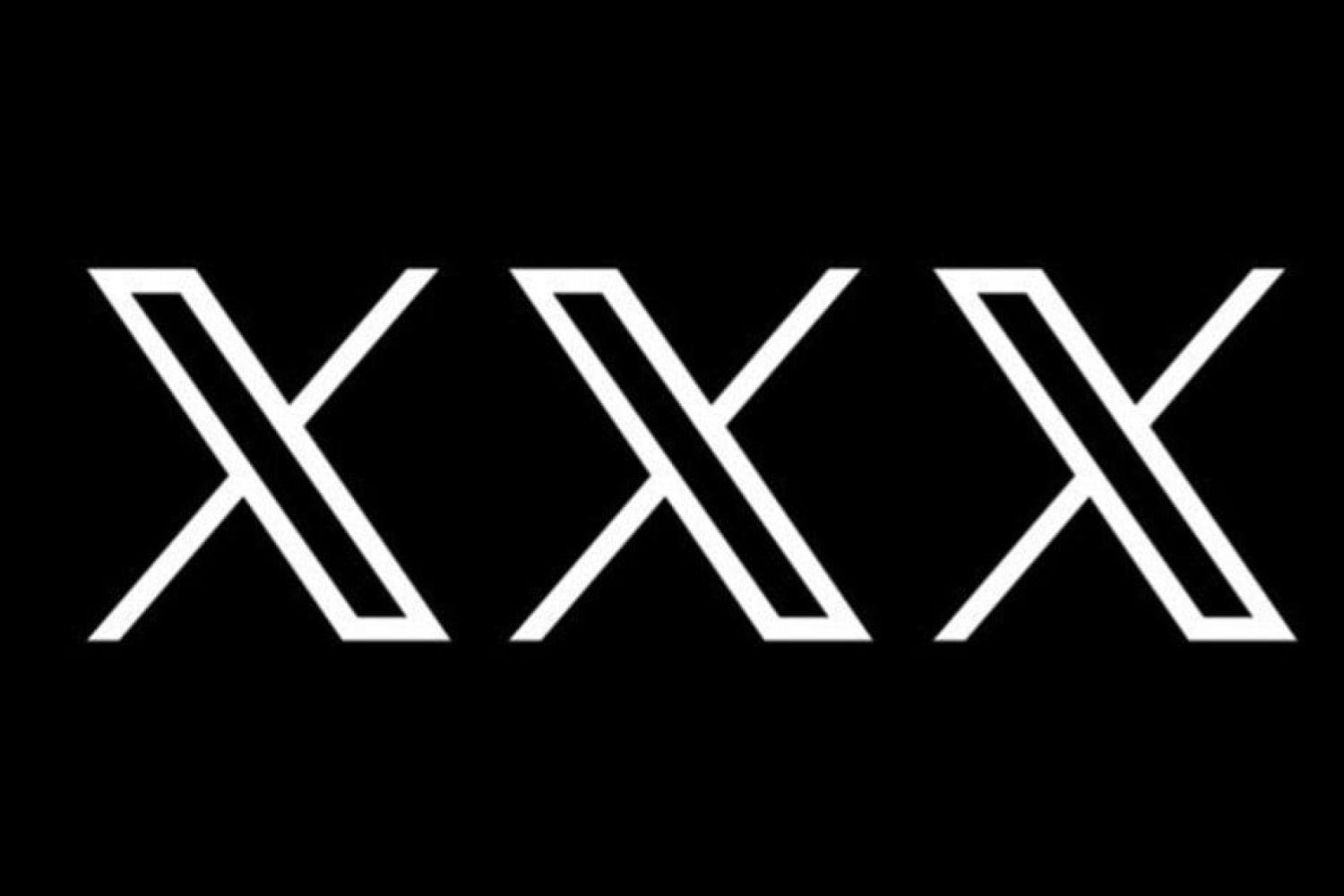


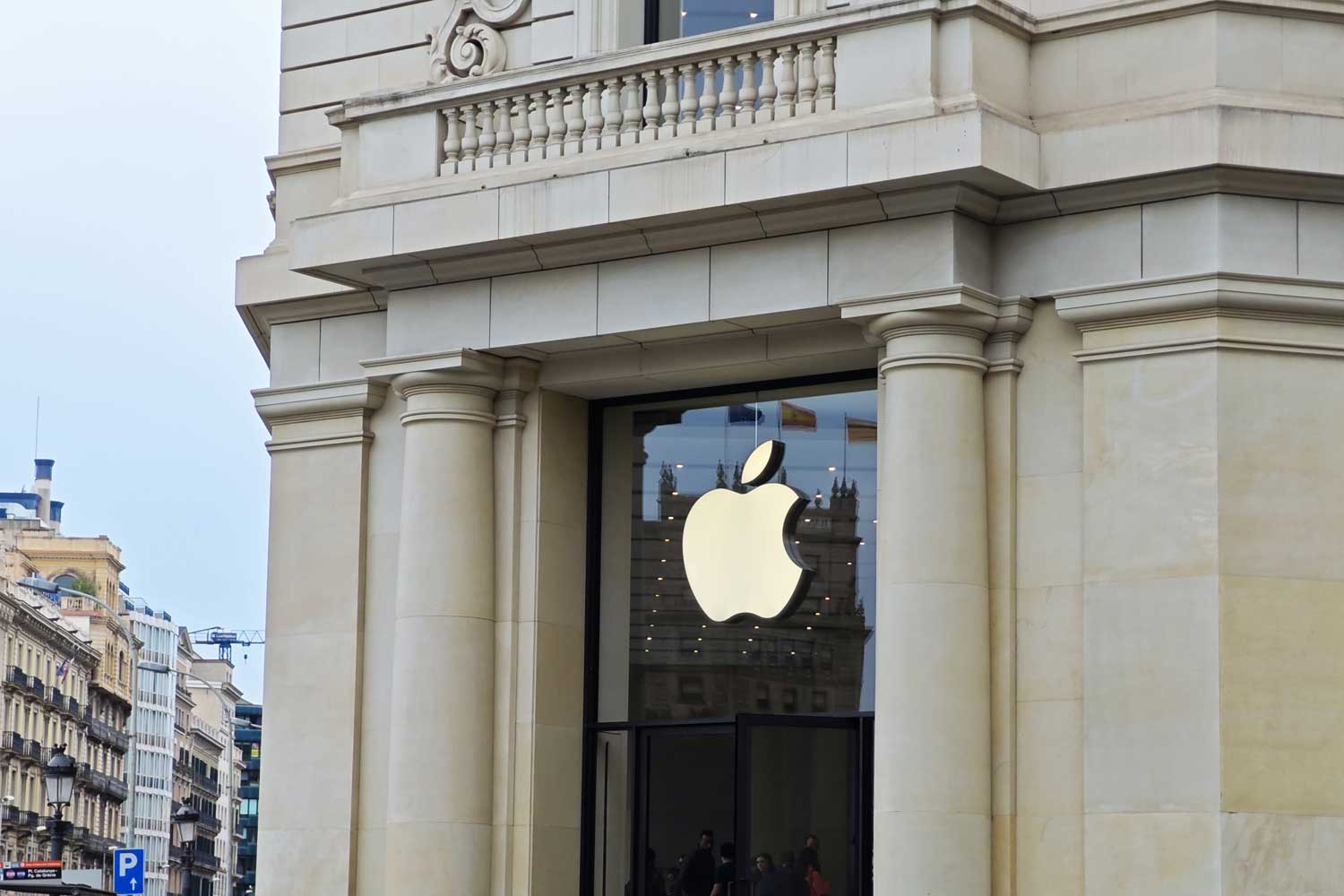
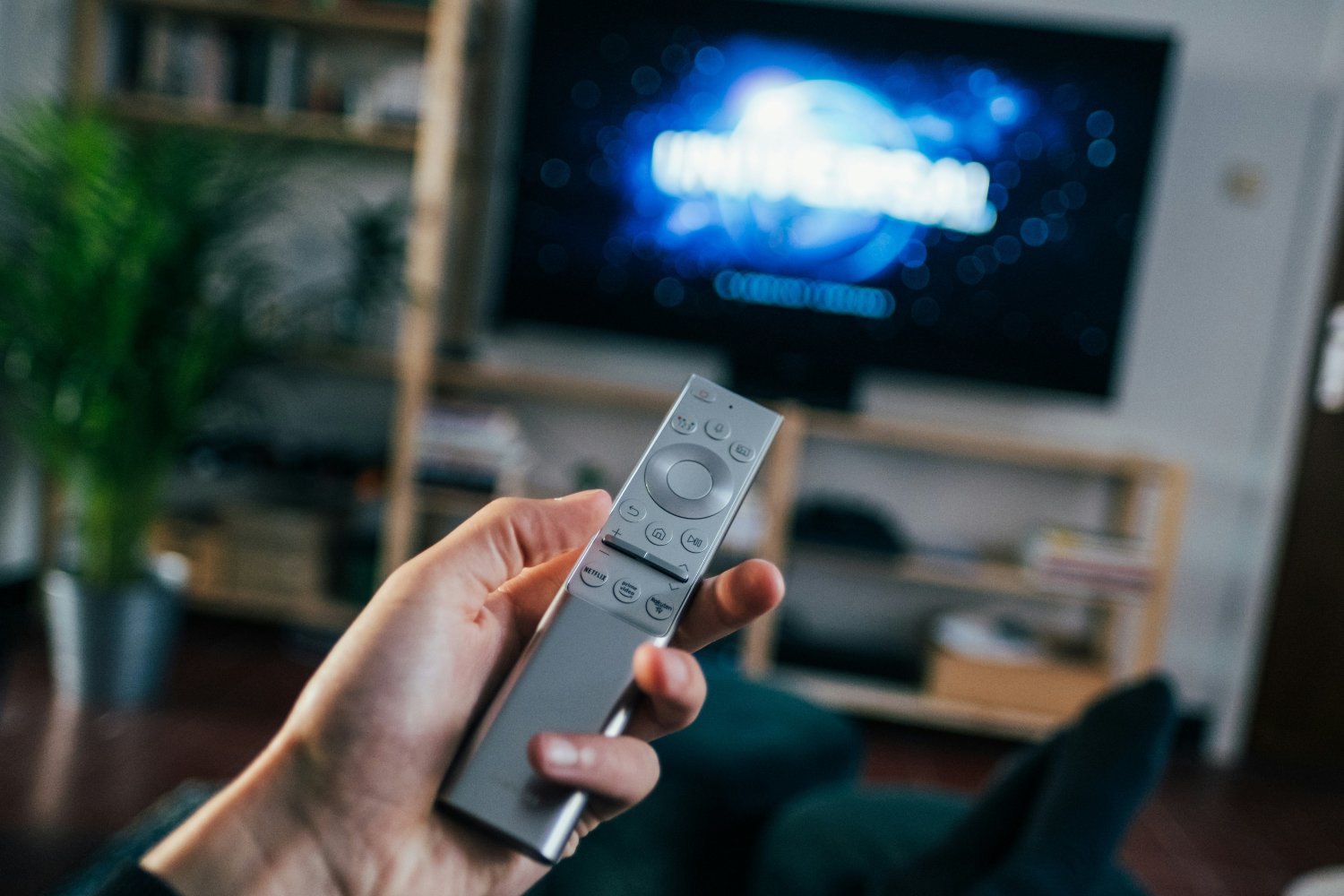

 Under U.S. law, online service providers must respond to takedown notices and implement a meaningful policy to terminate the accounts of repeat infringers.
Under U.S. law, online service providers must respond to takedown notices and implement a meaningful policy to terminate the accounts of repeat infringers.
